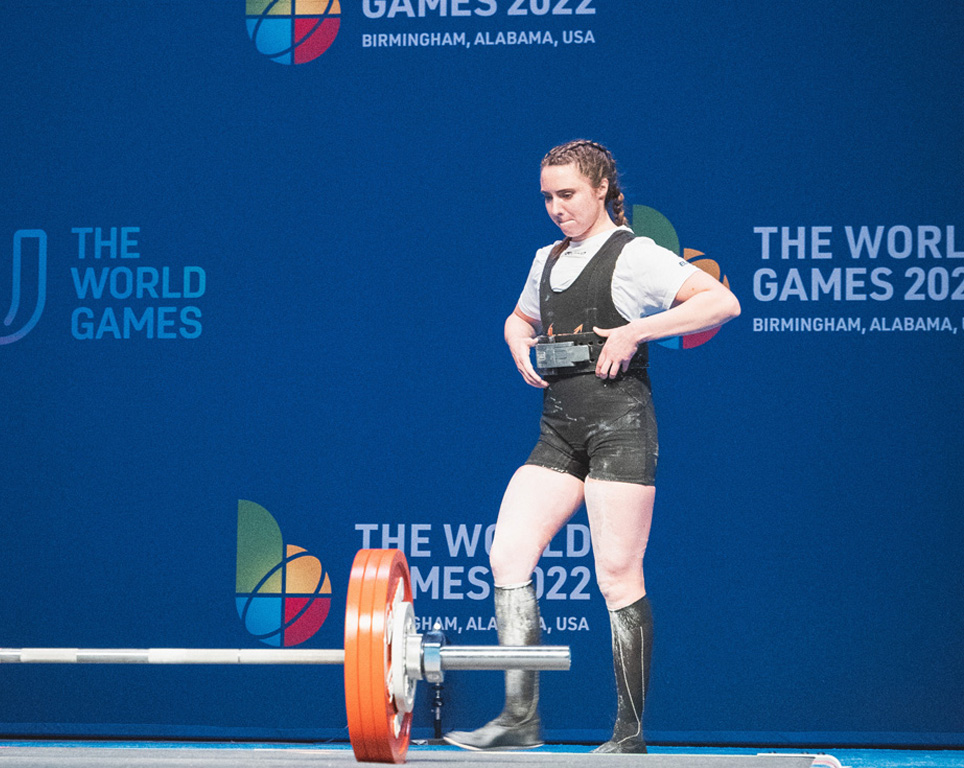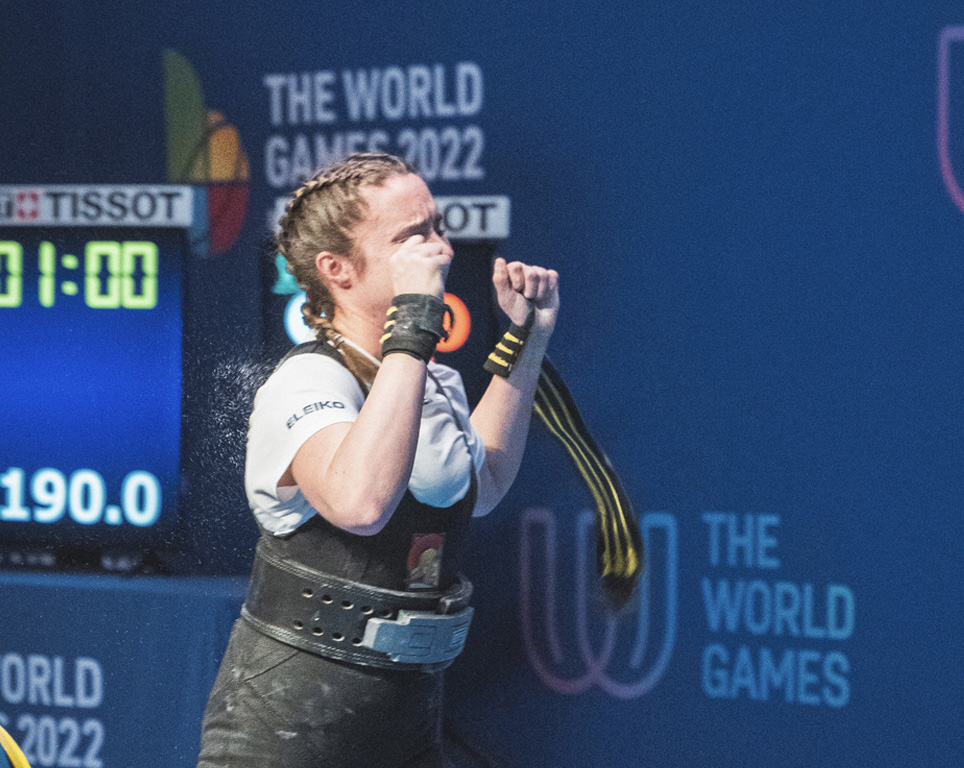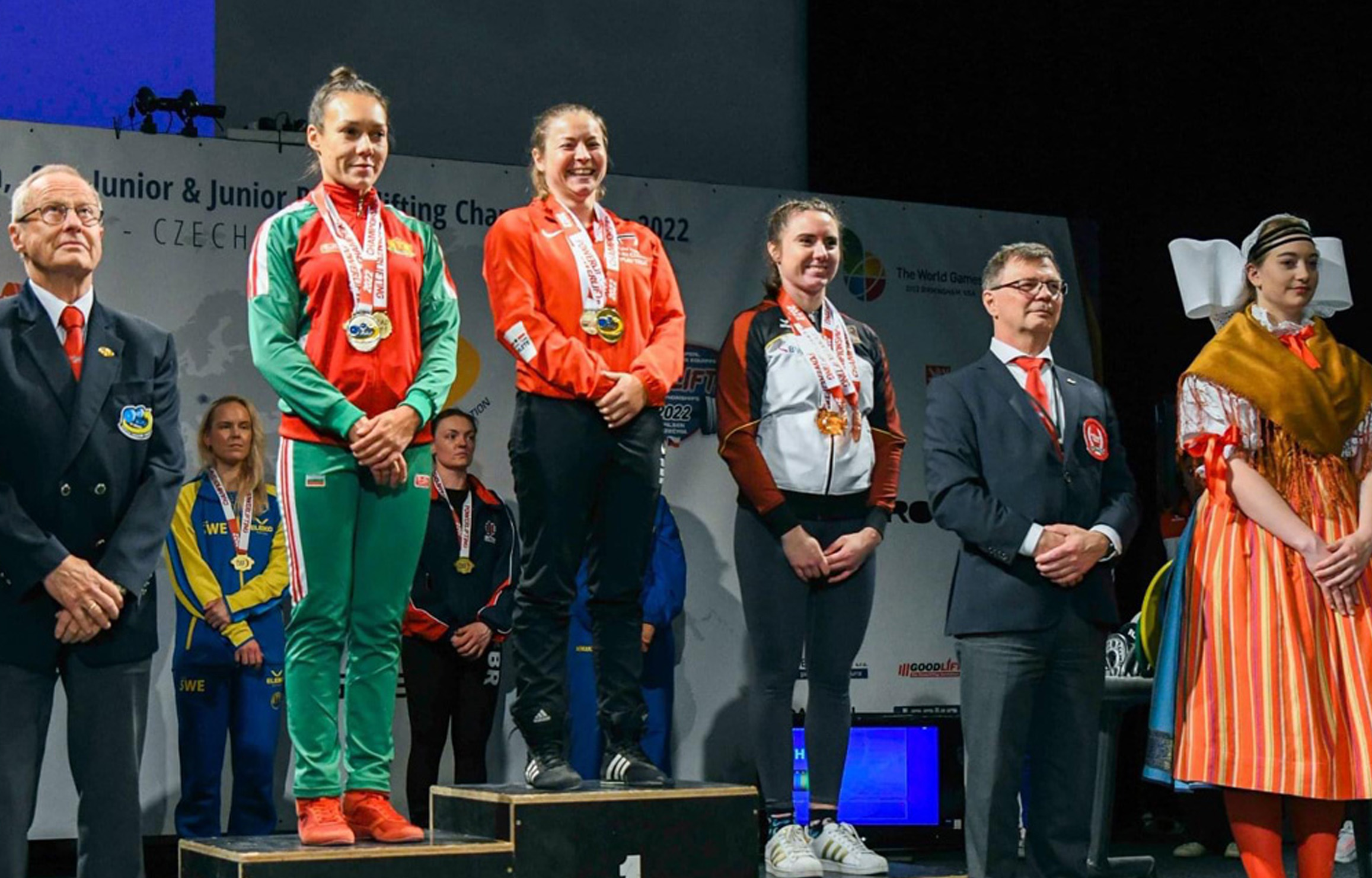
Strong structure through competitive sports and a master’s degree
Lisa Schlagbauer, who lives in Cologne, is not only enthusiastic about PR and digital marketing, the subject of her master’s degree at the Media University. For four years she has been a competitive athlete for her home club Powerlifting Würzburg Powerlifting Würzburg. Meanwhile, the 26-year-old is a member of the German national team and competes in international competitions. Shortly before the World Cup in Denmark, we asked her about her motivation for this full daily program.

Hello Lisa! To get you started, let me ask you when you started at the Media University and why.
I started studying for a master’s in public relations and digital marketing here in the winter semester of 2021/22. I completed my bachelor’s in communication studies at the University of Bamberg. Since I had already worked in marketing communications at Siemens Healthineers on the side, I wanted the master’s program to be practical as well, which is why I chose this private university.
What was the result?
Qualifying was more than I had ever dreamed of. I was particularly pleased to achieve a top 10 ranking in my weight class.
Congratulations! Please explain what it is all about and what to expect at the upcoming World Championships in Denmark.
Powerlifting consists of three disciplines: squats, bench presses and deadlifts. “Equipped” means that, unlike in “classic” powerlifting, these disciplines are performed with equipment – comparable to pole vaulting and high jumping. In the case of squats, you get your knees bandaged and wear a very tight – and uncomfortable – polyester suit. The bench press is the most technically demanding exercise. In competition, you have three attempts with the maximum weight for one repetition per discipline, of which at least one must be valid to receive an overall ranking. The person who has lifted the most weight in all the disciplines wins. However, individual medals are also awarded internationally for each discipline.
How long have you been doing powerlifting and what does it mean for your everyday life and studies?
I have been doing this competitive sport since 2018. Before that, I was already active in cheerleading, both on teams and in competitions. I currently train five times a week for two to three hours each time. On top of that, I work 20 hours a week at congstar in customer relationship management and volunteer for my association. So the most important thing is good time management: I have to plan and structure my week very carefully. I try to use breaks sensibly and work during train journeys, for example. During the semester, I scheduled the presentation topics around the World Cup, and I prepare as much as possible in advance for group work. I split training sessions if it allows me to better integrate them into the course of the day, get up very early and prepare meals in advance: nutrition is an essential factor in competitive sports.
I’m also in the anti-doping pool. This means I have to update my overnight accommodation and whereabouts daily, as I have to be available for a doping test at any time.
That sounds very time-consuming! What drives you?
I have always been ambitious and active, and I like the fact that competitive sports provide a clear structure and consistency. It’s stressful, but not chaotic. Especially in powerlifting, it spurs me on that continuous training and performance also pay off. And the moment you stand on a competition platform is simply amazing! All the spotlights are on you, the competitions are broadcast on TV or online, and friends and family are watching and rooting for you. As for my studies, I know what I’m doing it for. I want to stay in this field, so I have a high intrinsic motivation. And above all, I have consciously chosen all of this for myself.


What are your future plans with this combination of competitive sports and PR studies?
As far as the sport is concerned, I will take part in all international competitions for as long as possible, because it is so much fun and is a driving force in itself. Professionally, I can well imagine a traineeship in corporate communications after my master’s degree, for example.
And would you generally recommend sports to other students?
Absolutely! Both as a way to stay physically fit and to clear my mind. During training, I can fully concentrate on it. It’s important to have a physical separation between the place you train and the place you work. During the coronavirus pandemic, that wasn’t always the case and it was quite a challenge when I was working on my bachelor’s thesis and my training equipment and desk were in the same room. Doing sports with others also provides a social balance – I meet my friends at Kraftsport Colonia during training and at the Media University.
Dear Lisa, thank you very much for your time and the exciting insights! We wish you every success at the World Championships in Denmark!
















